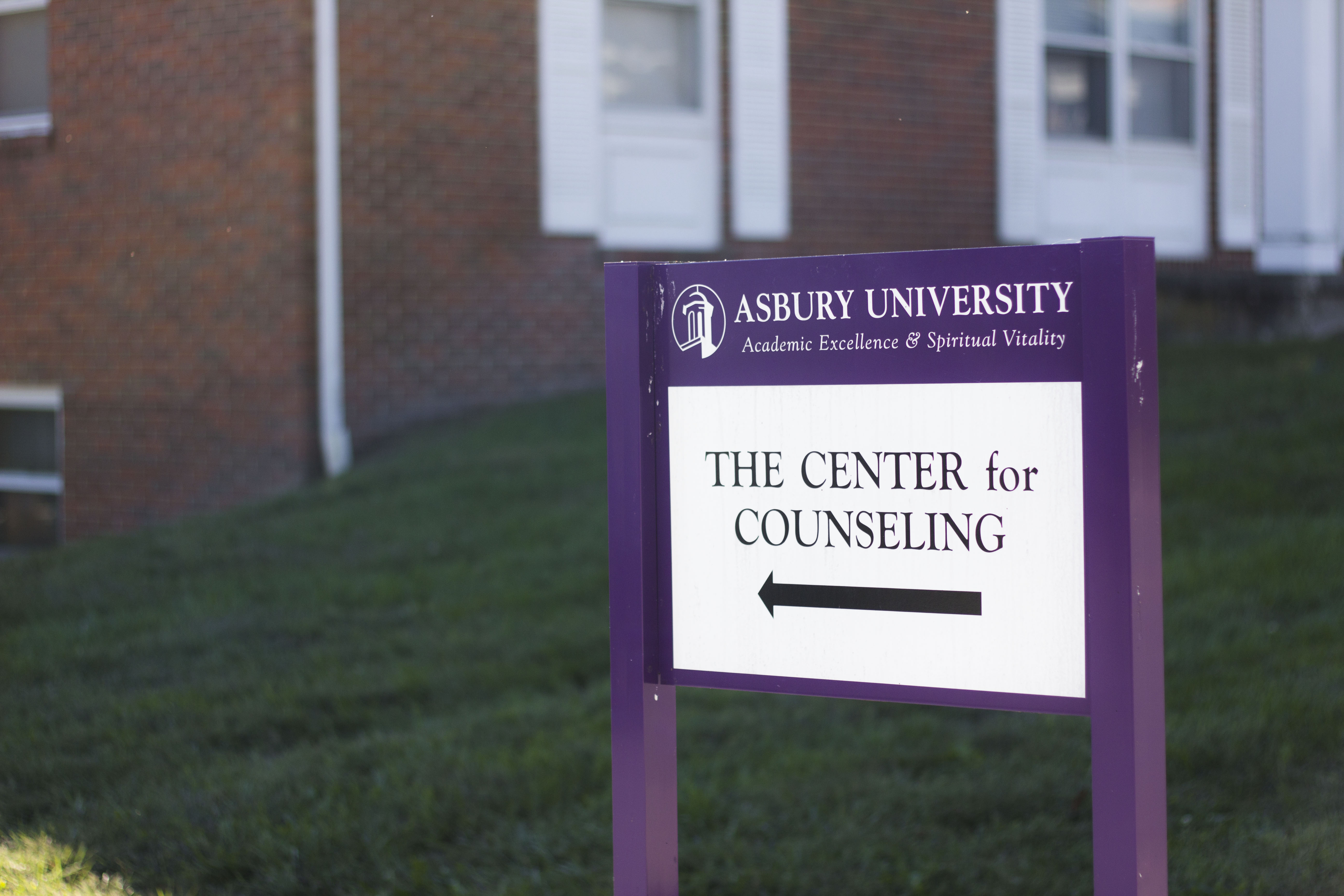By Katie Ellington, News Editor
When it comes to mental health on campus, students aren’t the only ones who are overwhelmed.
While numerous studies indicate that mental illnesses among college students are on the rise, many experts say the problem is no less than a mental health crisis. Meanwhile, campuses both big and small are forced to come up with solutions to help students overcome various mental health problems. Larger universities are adding support groups, developing wellness apps and even installing kiosks around campus with surveys that can screen students for mental health disorders and recommend whether or not they should seek professional help.
Asbury has not been immune to these challenges. From 2011 to 2014, the number of Asbury students who sought help at the Center for Counseling (CFC) during the first four weeks of the school year doubled. This year, 93 students had come for counseling by Sept. 23, a 29 percent increase from last year.
The increase in clients became an even bigger issue last year, when there were more students seeking counseling than there were appointment times available. By the end of the Fall 2014 semester, the center had switched most of its clients from weekly to biweekly appointments, almost doubling the number of clients that could be seen; however, by spring the demand was once again too great. After securing funds from Student Development, the CFC began sending emails to students on its wait list telling them that they were free to remain on the list but that the university would also pay for them to be seen by a center off-campus. As always, students in crisis situations received top priority.
“On every email we send out it says ‘if this is an emergency or if this is a crisis, you will be seen,’” said Kevin Bellew, a counselor and supervisor of practicum counselors at Asbury’s CFC.
[column size=two_third position=first ]
With even more students seeking help this year, the CFC has to be even more resourceful. While the counseling center doesn’t have the office space for another full time counselor, counselors have begun to create groups. An anxiety management skills group is already meeting. Bellew says counselors are working on starting a grief support group. He hopes that this shift will help reach more students and create supportive communities as well as free up more time for individual appointments.
“We’re not saying you can’t come to counseling,” explained Bellew. The center will make referrals for students who could benefit from groups, but continue to offer individual counseling to those who request it.
“One of the most powerful elements of groups is in knowing that you are not alone,” practicum counselor Tara Belt wrote in an email. “People learn from one another when they hear the stories of others, and it is healing to be able to share your story with others in a setting that is safe and therapeutic.”[/column]
[column size=one_third position=last ]It is healing to be able to share your story with others in a setting that is safe and therapeutic.[/column]
Why are so many college students seeking counseling? Most experts believe that an increase in mental illness is certainly part of the problem; however, it is also because there is less of a stigma about seeking professional help. An article published by USA Today cited a 2011 study by the National Institute of Mental Health, which found that 30 percent of college students felt “so depressed it was difficult to function” at some point in the previous school year. The article also said that three fourths of students reported experiencing a mental health crisis at some point during their college years.
Over the past few years, anxiety has replaced depression as the number one mental health issue for students. Last May, the New York Times reported that more than half of students visiting campus clinics cite anxiety as a health concern. It also stated that nearly one in six college students have been diagnosed with or treated for anxiety within the last 12 months.
Experts have come up with multiple factors they believe cause such a degree of anxiety. Almost all say that academic pressures and responsibilities are a large contributor. Many also count the transition into independence and adulthood as major factor, as well as social media.
Bellew agrees, saying that a decrease in face-to-face communication “affects our ability to cope and handle life’s bumps and curves.” It also makes it harder to form the kind of relationships that help us get through difficult times.
For Asbury students, over-scheduling is also a major issue.
“Students schedule time for their friends, they schedule time for their classes, they schedule time to help other people,” he explained. “But they don’t set aside thirty minutes to relax.”




